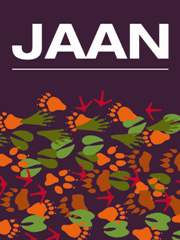No CrossRef data available.
Article contents
Preliminary investigation of the influence of long-term dietary isoflavone intake on puberty onset and oestrous cycles in domestic cats (Felis catus)
Published online by Cambridge University Press: 06 September 2013
Summary
Genistein and daidzein are isoflavones which are reported to influence the reproductive system in a variety of mammalian species. This pilot study aimed to determine if dietary isoflavones could potentially influence reproductive parameters in domestic cats, when consumed during the postnatal development period. Cats (n = 12) were maintained on either a treatment (150 µg/g DM genistein and 150 µg/g DM daidzein, n = 4) or control (isoflavone free, n = 8) diet from weaning, up to 414 (±17.2) days post-weaning. Vaginal smears were taken thrice weekly and examined for oestrogen-induced cellular degradation in all cats. Behavioural indicators of oestrous were routinely scored for the presence or absence of six key behaviours. Genistein and daidzein did not alter puberty onset or oestrous cycle parameters in these cats (P > 0.05). Behavioural scores were higher in cats in the treatment group than control. Incidence of apparent spontaneous ovulation (inferred from extended inter-oestrous periods) was greater in treated cats than control cats, although serum hormone profiles were not available to confirm this observation. Further testing is warranted.
- Type
- Pilot Study
- Information
- Copyright
- Copyright © Cambridge University Press and Journal of Applied Animal Nutrition Ltd. 2013


